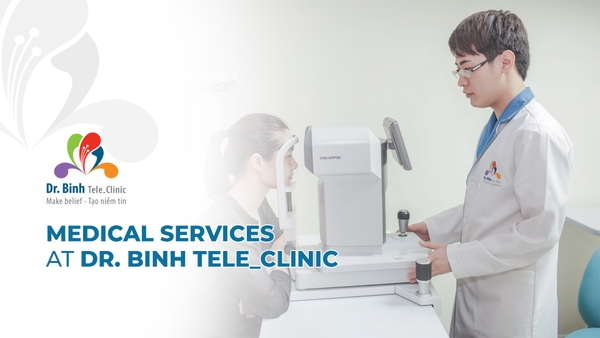Vietnam develops early treatment plan for COVID-19
- Dr.Binh Tele_Clinic offers up to 30% off on endoscopy with anesthesia combos
- Special Offers at Dr.Binh Tele_Clinic on Vietnamese Women’s Day
- Dangerous complications of cerebral infarction
- What to know when treating urinary stones?
12/03/2020
-0 Bình luận
Lương Ngọc Khuê, head of the Health Ministry's Department of Medical Examination and Treatment, talks about Vietnam’s methods to effectively deal with COVID-19.
Thanks to medical staff all over the country, all 16 confirmed cases of SARS-CoV-2 in Vietnam have now been treated. What do you think about this success?
All 16 cases have been successfully treated and released from hospital – which is a significant milestone for our health sector.
Our treatment so far has proved its effectiveness. The feeling that doctors will try to do their best for patients has given them a sense of trust and optimism. The World Health Organization has recognised Vietnam’s efforts in these regards.
Despite recording only 16 positive cases so far, we have prepared for many possible scenarios.
For those already released from hospital, their physical and mental well-being still needs to be constantly monitored and medical workers need to look after them and encourage them. To this end, central-level healthcare establishments and their local level counterparts have been working together.
We have directed hospitals and medical centres in Khánh Hoà, Thanh Hoá and Vĩnh Phúc – the three provinces with the most cases in the country – to continue focusing on their patients and make sure they are not subject to discrimination or social isolation.
Further surveillance is still necessary.
How did the country manage to treat the COVID-19 patients?
As soon as the information regarding the emergent pneumonia-like disease was available in China, Deputy Prime Minister Vũ Đức Đam led a robust response team that involved the health sector and all related agencies.
As per protocol with regards to dealing with infectious outbreaks, Vietnam set out professional guidelines quickly. We immediately organised a professional panel with leading experts in the field and came to a conclusion that the coronavirus disease appeared to share many similarities with the devastating Severe Acute Respiratory Syndrome (SARS) outbreak that occurred from 2002-04.
New treatment and prevention guidelines were quickly developed based on existing evidence before the traditional Lunar New Year (Tết) holiday. Training sessions were then held for doctors and medical staff around the country.
Even when the three first positive cases were released from Chợ Rẫy Hospital in HCM City, the Tropical Diseases Hospital in Khánh Hoà Province and Thanh Hoá Province General Hospital, we updated treatment and prevention guidelines to include more details, from initial reception and quarantining patients, to administering medicines or drips.
Has Vietnam followed WHO guidelines?
Vietnam was always one step ahead of WHO recommendations.
All 16 cases released from hospital are in good health and no deaths have been reported.
The patients ranged from elderly people to a months-old baby, and there were those with several underlying health issues like high blood pressure, heart complications or diabetes. There was also a Chinese patient from Wuhan who had undergone a lobectomy due to cancer.
What measures has Vietnam taken in terms of decentralising treatment and prevention efforts?
The public can put their confidence in Vietnam’s health sector.
For patients with mild symptoms and no severe developments, they can be treated at provincial-level medical centres. Thanh Hoá and Khánh Hoà provinces have proved this possible, so we certainly don’t need to bring all COVID-19 patients to central-level hospitals.
With the four on-site mottos (on-site leadership, on-site forces, on-site facilities and on-site logistics) combined with the full support of central-level experts and doctors, grassroots-level hospitals and medical establishments can be capable of successfully treating SARS-CoV-2 infected patients.
Effective quarantining will be critical in containing the outbreak. Can you elaborate on this?
To deal with an infectious disease, the first principle is effective quarantining. Regarding patients – no matter whether they are suspect cases or positive cases – hospitals need to strictly abide by quarantining rules set by the health ministry in order to protect the community, patients and the doctors themselves.
COVID-19 has proved to be a highly contagious disease. In neighbouring China, many doctors and medical staff have succumbed to the disease, and that’s a costly lesson. Therefore, the health ministry’s objective is to prevent medical staff from becoming infected and prevent the spread from hospitals to the public. There have been no cases of infected doctors in Vietnam, fortunately. The health ministry has also tried to provide medical staff with essential protective gear to protect themselves.
With that being said, quarantine efforts need close co-operation from public security forces and local governments.
We have set out three forms of quarantine.
First, a quarantine zone for suspect cases, they are not positive cases but they need to be isolated from the community. The second zone is for infected people with mild symptoms who can still go about their daily activities without outside support. The third zone is for acute positive cases that need special management.
Source: VNS




















Bình luận của bạn